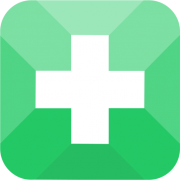Telehealth with a Dentist
Follow these easy steps to speak with a dentist and get some relief for your dental problem...

Request to speak with a Dentist
By registering, you will be creating a MedicRelief account and therefore agree to the Terms of Service and Privacy Policy in relation to the use of this service, our websites and the MedicRelief app.
Complete Request
Select a call type and then enter other payment options if available to you...

BASIC CALL
Short calls are priced to ensure affordability and efficiency.
12 HOURS

NORMAL CALL
All international calls involve private fees and are not claimable.
6 HOURS

LONG CALL
Strict adherence to patient confidentiality and privacy policy.
2 HOURS
Payment


Please note that this call will be recorded for quality and safety purposes.
Call Request Sent
If you already have an account, you can download the app and search for any doctor in the world that you may have seen in the past, regardless of whether it was on MedicRelief or somewhere else…
Elective Telehealth Consultations
General Oral Health Assessment Program may include:
- Caries susceptibility assessment
- Fluoride varnish program
- Access to network of dentists for patients
- Consult on oral sores, lesions, swelling and/or infections, prescribing medication when indicated
- Advise on broken, sensitive, or misaligned teeth
- Prescribe necessary remedies and medications to alleviate pain
- Provide advice as to whether a patient problem is medical or dental
Our consulting dentists can:
- Help evaluate your dental goals
- Conduct follow-up consultation after your dental work has been performed
- Discuss questions about a proposed treatment plan
The dentist can also discuss with you common non-urgent dental questions such as:
- When does my child start to get or loose teeth?
- Is this tooth in the right place?
- Do I need braces?
- Why is this tooth dark?
- My gums bleed when I brush my teeth. What’s wrong?
Who are most suited to a Telehealth consultation?
Any patient who has recently undergone a dental procedure and requires follow up or has concerns with their recovery after the procedure or is presenting with an acute dental problem:
- outside of normal practising hours,
- who is unable to attend the clinic due to illness, isolation or quarantine.
This may also include vulnerable patients during pandemics including those who are:
- aged 70 years or older
- identify as being of Aboriginal or Torres Strait Islander descent
- pregnant; or
- the parent of a child aged under 12 months; or
- being treated for a chronic health condition; or
- immune-compromised; or
- meet the current national triage protocol criteria for suspected COVID-19 infection.
When would a Telehealth be appropriate?
Outlined below is a series of examples where it would be appropriate to conduct a Telehealth consultation remotely.
Toothache
The following suggested questions may help the dentist determine if it is an acute odontogenic infection:
- Is this new or recurrent?
- Have you recently undergone a dental procedure?
- Have you been prescribed antibiotics for this problem before?
- Do you have an elevated temperature?
- Do you have facial swelling and pain, trismus, neck swelling, difficulty swallowing, difficulty breathing or a compromised airway? If you have a spreading infection/cellulitis, you should present to the nearest emergency department and the dentist should call the hospital and provide details of the referral
- If an existing patient, do you have any changes to your medical history, including allergies, medications. If new patient, detail full medical history.
- Determine the site of the pain
- Determine how long the patient has the pain
- Determine the nature of the pain. E.g. Stabbing throbbing etc
- Determine if the pain radiates
- Any other signs and symptoms.
If you do not meet admission criteria for hospital, the dentist will consider if you need pharmaceuticals and/or if management can be deferred. The dentist will refer to the relevant Therapeutic Guidelines for Oral and Dental health in your community for the appropriate prescription of analgesia and/or antibiotics.
Broken or Loose Tooth
The dentist will ascertain from you the degree of mobility of your tooth or teeth. If there is no pain and the tooth is not mobile enough to be aspirated, management may be deferred.
If the tooth has broken, you should be let the dentist know if there is any pain or hot/cold sensitivity. Treatment may occasionally be deferred if the tooth is asymptomatic.
If the tooth is broken or chipped, or causing soft tissue irritation, the dentist may direct you to file down the tooth yourself with some sandpaper or a nail file. Orthodontic wax might also be suggested.
Trauma
In cases of dental trauma, the dentist will determine if the management of this may be deferred or if urgent visual inspection is required. The dentist may wish to ask some or all of the following questions to help in determining the extent of the injuries.
- Which area of the face was there trauma to?
- Is the tooth sore to touch?
- How loose is it?
- Is the tooth broken?
- Is the gum around the tooth bleeding?
- Is there bleeding from the lips, gums or other tissues?
Orthodontics
The dentist will ascertain if this is a situation for which the management may be deferred. You can use MedicRelief to contact your orthodontist if the arch-wire has come loose, or the bracket has come loose for advice. If there is soft tissue irritation, you may be directed to place some orthodontic wax or sponge (from a makeup remover pad) over the sharp area.
Broken Dentures / Crowns / Bridges
Broken dentures should not be worn if they are an aspiration risk. Management of broken crowns and bridges should be deferred. Broken or loose crowns should be kept safely until treatment can be provided in the clinic. You will not be encouraged to re-cement any of these due to an aspiration risk.


